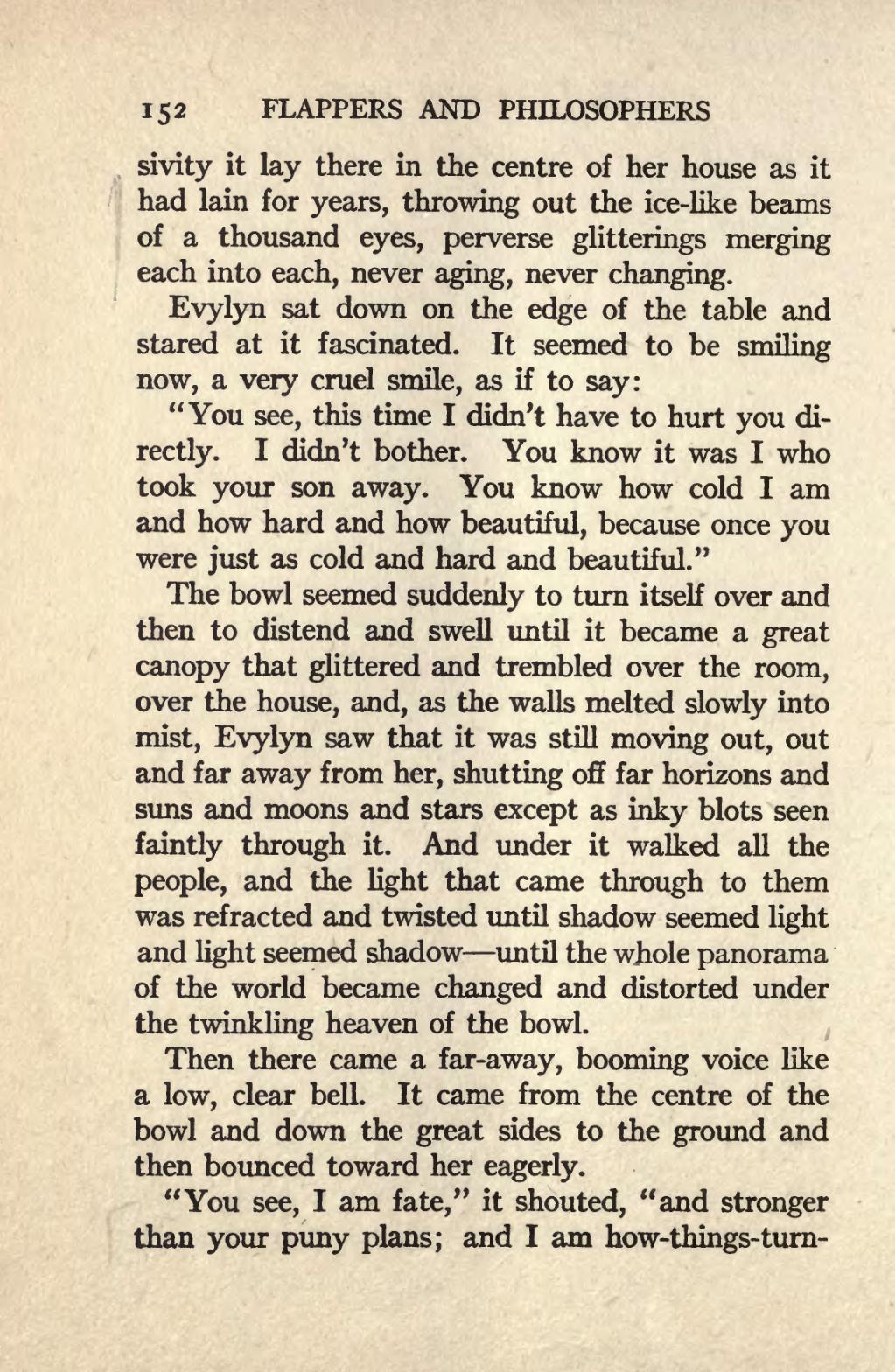sivity it lay there in the centre of her house as it had lain for years, throwing out the ice-like beams of a thousand eyes, perverse glitterings merging each into each, never aging, never changing.
Evylyn sat down on the edge of the table and stared at it fascinated. It seemed to be smiling now, a very cruel smile, as if to say:
"You see, this time I didn't have to hurt you directly. I didn't bother. You know it was I who took your son away. You know how cold I am and how hard and how beautiful, because once you were just as cold and hard and beautiful."
The bowl seemed suddenly to turn itself over and then to distend and swell until it became a great canopy that glittered and trembled over the room, over the house, and, as the walls melted slowly into mist, Evylyn saw that it was still moving out, out and far away from her, shutting off far horizons and suns and moons and stars except as inky blots seen faintly through it. And under it walked all the people, and the light that came through to them was refracted and twisted until shadow seamed light and light seemed shadow—until the whole panoply of the world became changed and distorted under the twinkling heaven of the bowl.
Then there came a far-away, booming voice like a low, clear bell. It came from the centre of the bowl and down the great sides to the ground and then bounced toward her eagerly.
"You see, I am fate," it shouted, "and stronger than your puny plans; and I am how-things-turn-
